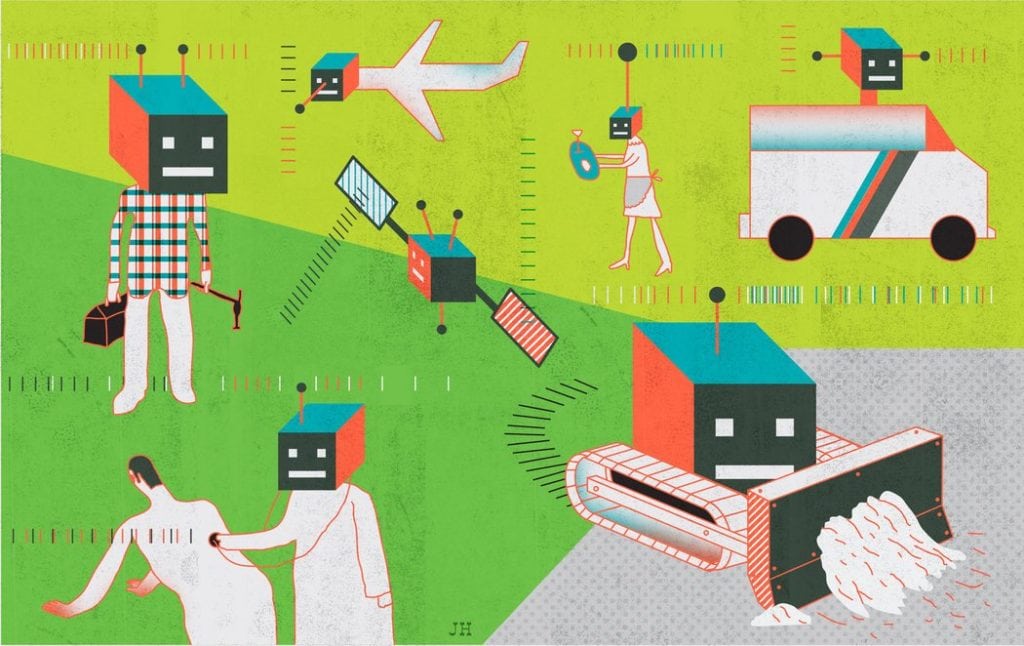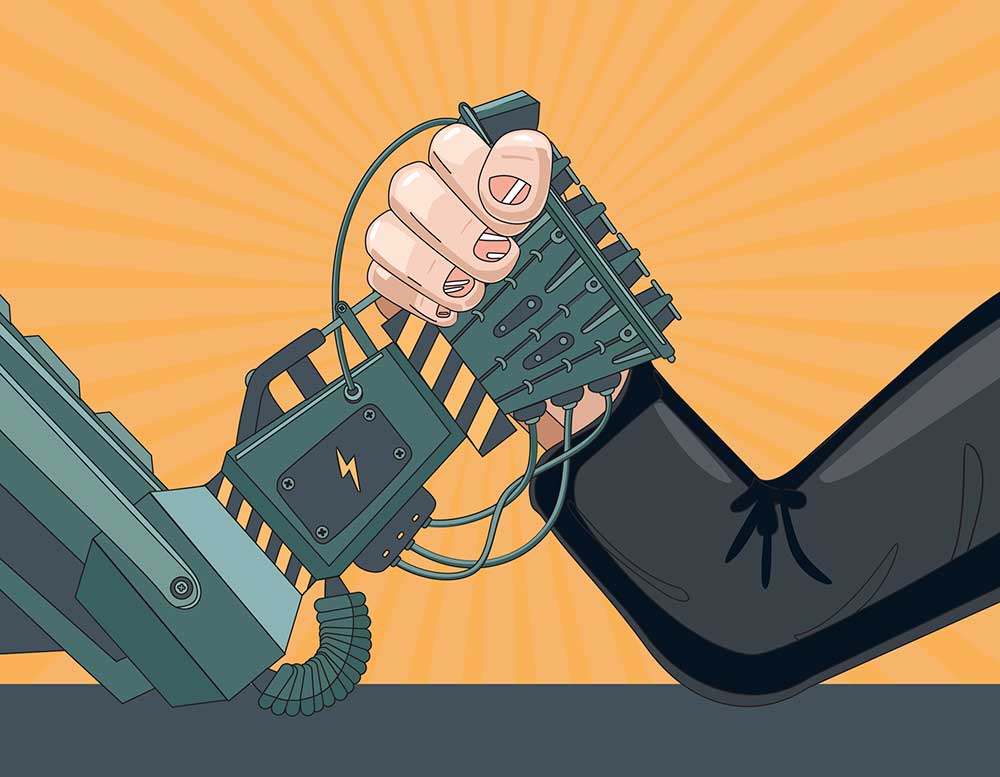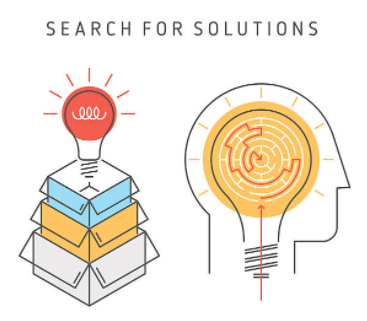The robots are not coming; they’re already here. Generation Z learning styles have already changed how people gather information. And they are changing the future of jobs market for your kids in ways you may not necessarily expect. Some analysts envision apocalypse where others see salvation, but artificial intelligence and technological innovation will likely affect the future of work somewhere in between. While not all the experts agree, there are some common themes that suggest that the best jobs and ways to make money in the future are counter-intuitive.
Nothing is more widely agreed upon than the accelerated pace of technological change that shows no signs of slowing down. Billionaire investor Mark Cuban observed that, “what took 20 years before, and then became 10, could be 5 or 3” in the near future.[1] Young people entering the workforce today will likely have multiple careers, engage in more freelance work, and will not have the job security their grandparents or even you have experienced.[2] Automation is also routinely recognized as a major catalyst of job market change, which means that the ability to interpret and synthesize information will be increasingly important. While the loss of manufacturing jobs is currently the most observable effect, today’s top jobs may be equally under threat in the future. Industries such as programming, finance, and engineering look like attractive career directions for your child now, but in 5-15 years, these fields will also experience major job losses due to automation.[3]
Automation is also routinely recognized as a major catalyst of job market change, which means that the ability to interpret and synthesize information will be increasingly important. While the loss of manufacturing jobs is currently the most observable effect, today’s top jobs may be equally under threat in the future. Industries such as programming, finance, and engineering look like attractive career directions for your child now, but in 5-15 years, these fields will also experience major job losses due to automation.[3]
The accelerated pace of innovation and automation do not need to foreshadow future unemployment for your children, however. Their thinking about what job skills are valuable may just need to change. Harvard education expert Dr. Tony Wagner outlines seven “survival skills of the future”: critical thinking & problem solving, collaboration & influencing, agility & adaptability, initiative & entrepreneurship, oral & written communication, assessing & analyzing information, and curiosity & imagination.[4] Rather than competing with technology, students should be seeking jobs in areas where humans have a genuine competitive advantage with these types of skills such as the design skills required of a mechanical engineer.
With terms like data analytics, the Internet of Things, and blockchain technology regularly surfacing in the media, it can be tempting to drive students toward only technical or “practical” fields where parents imagine more promising job offers pouring in. But the jobs of the future will favor people with soft skills, critical thinking ability, creativity, and adaptability over those with narrow, technical expertise. In 2017, a philosophy major may be a more prescient, “robot-proof” choice than a finance major. Only time will tell.
[1]https://youtu.be/CxD4F3MQRDI?t=13m
[2]https://psmag.com/economics/the-future-of-work-we-have-been-here-before
[3]https://youtu.be/CxD4F3MQRDI?t=13m
[4]https://singularityhub.com/2017/07/04/7-critical-skills-for-the-jobs-of-the-future/

